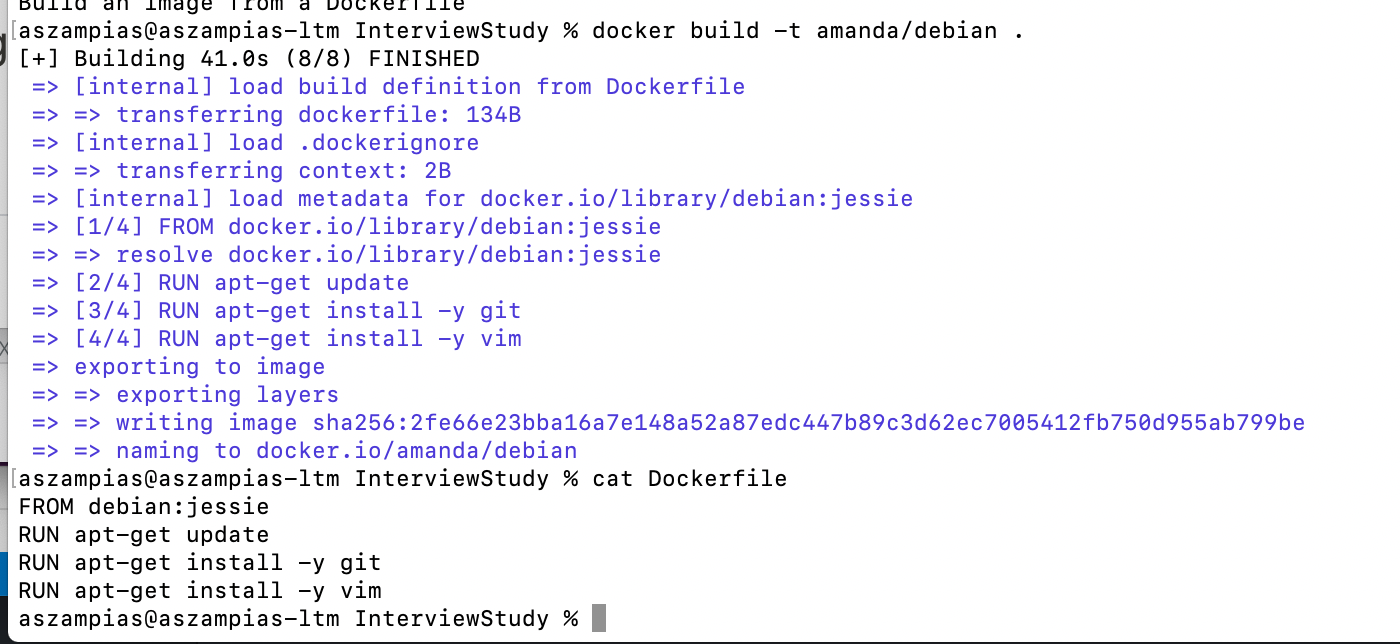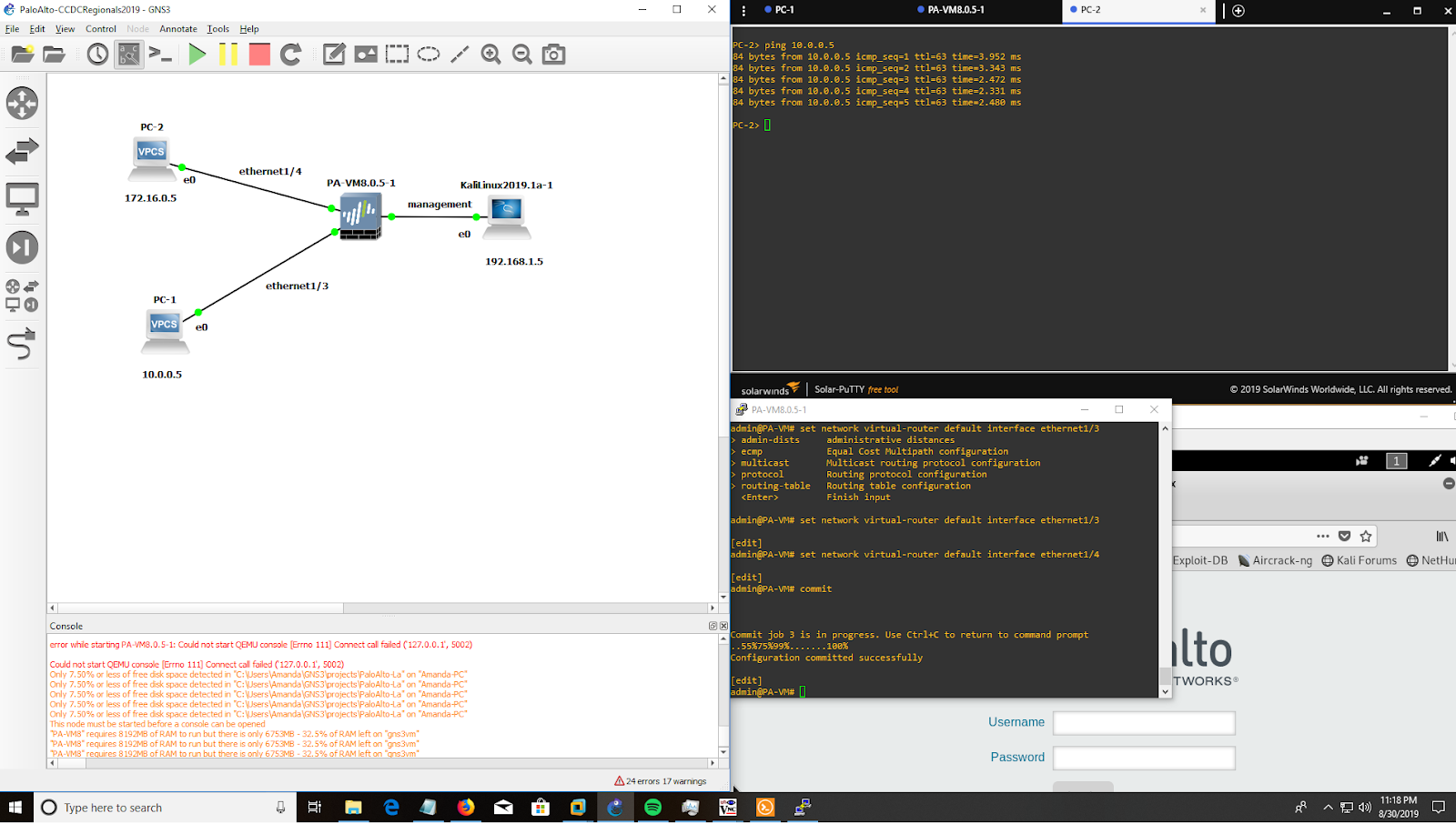Docker Notes
1. Pull a Docker Container with/without tags.
By default, Docker will pull the :latest image.
Pull The busybox image from here: hub.docker.com
docker pull busybox // same thing as latest docker pull busybox:latest docker pull busybox:1.24
2. Run a docker container
docker run -i -t busybox:1.24 // pops an interactive shell docker run -it busybox:1.24 // same thing, switch -it combined docker run -name hello_world busybox:latest echo hello // runs it for a second
3. List Running Containers
docker ps -OR- docker container list
4. Running a Container with Port
docker run -it -p 8080:8080 tomcat:8.0 - OR - docker run -d -it -p 8080:8080 tomcat:8.0 //detached mode // runs in background docker logs 33929010101010101 // get logs for -d
5. Save changes to Container
docker ps -a (copy short Container ID) docker commit 4b6df73fb04a amanda/debian:1.00 sha256:5e38921b9a8ff1980a31d711a008db522f9f24feeda167b6a75501ccb9d925bd docker images
6. DockerFiles
A Dockerfile is a text document that contains all the instructions users provide to assemble an image.
Try to have as little RUN commands as possible. Chain commands like above.
7. Pushing Docker Image to DockerHub
8. Linking Containers to Talk to Eachother
docker run -d --name redis redis:3.2.0 docker build -t dockerapp:v0.3 . docker run -p 7000:7000 --link redis dockerapp:v0.3
9. Using Docker Compose
docker-compose up - OR - docker-compose up -d // for background docker-compose ps docker-compose logs docker-compose stop docker-compose rm docker-compose build // when you change the yml file.
10. Different Networks in Docker
1. None Network
Disables networking. Unable to reach outside world. Only have a local lo interface. Good choice if you don't need networking.
2. Bridge Network
Default option in Docker containers
3. Host Network
Also known as open containers, least secure.







Comments
Post a Comment